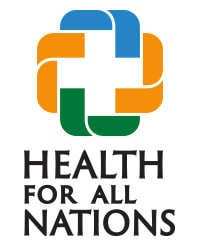|
“And there is no question that people today have far fewer resources than their ancestors did to deal with the entire problem.” (of suffering from illness) So states Jean-Claude Larchet, a French Orthodox researcher who is described as a foremost Orthodox Patristics (early church fathers) scholar in the intro to his book called The Theology of Illness. The author goes on to say “Without question, modern medicine has attained a remarkably high degree of scientific knowledge, technical ability and social organization….Yet we have to admit that this progress has its limits, and even its failures, due less to medicine itself than to various values – or ideologies – that in certain cases underlie its application and development.”
“The development of medicine in a purely naturalist perspective served to objectify illness, making of it a reality considered in itself and for itself. Illness came to be construed as uniquely physiological and somehow independent of the afflicted person, Rather than treat the (whole – my addition) person, many physicians today treat illnesses or organs. This fact – complicated by diagnostic methods that are increasingly quantitative and abstract, together with therapeutic methods that are more and more technical – has had as its primary consequence the effect of considerably depersonalizing medical practice…By regarding sickness and suffering as autonomous realities of a purely physiological character – and consequently as susceptible to treatment that is purely technical, applied to the body alone – modern medicine does practically nothing to help patients assume them. Rather, it encourages patients to consider that both their state and their fate lie entirely in the hands of the physicians, that the only solution to their trouble is purely medical, and that the only way the can endure their suffering is to look passively to medicine for any hope of relief and healing.” He goes on to state that …”the fear that of all that can endanger, reduce or eliminate that enjoyment (of biological life); the refusal of all forms of suffering and the suppression of pain as the highest value of civilization and the consummation of social development; the fear of biological death considered as the absolute end of human existence: all of this leads a great many of our contemporaries to expect that salvation comes from medicine and encourages them to make of the physician a new priest of modern times, a king who holds over them the power of life or death, and a prophet of their ultimate destiny.” (for a review of this intro check out THIS link) Pretty strong words. But also pretty accurate. I’m looking forward to reading through this relatively short work but from the reviews it’s a short work with a lot of truth. This question continues to haunt my thinking. Why can’t the Church of the 21st century regain the initiative in caring for the whole person? Where are our local churches where this is happening effectively? Where pain and suffering find their proper place and the role of the physician and healthcare team are not seen as the main means by which people experience true health. Another interesting conversation is one that the Roberta Winter Institute is promoting regarding why the Church is not strategizing about how to destroy the works of Satan which often show up as deadly viruses and bacteria that cause endless suffering among the worlds poorest.
0 Comments
Leave a Reply. |
AuthorThis is the blog for the Best Practices in Global Health Mission division of the Center for the Study of Health in Mission. It is a space for all who are interested in sharing opinions, ideas and best practices having to do with Christ centered health related ministry. Archives
April 2020
Categories |

© 2024 Health for All Nations All Rights Reserved In Partnership with Frontier Ventures and the Ralph D. Winter Launch Lab |
ABOUT The mission of Health for All Nations is to engage the global Christian community in the exploration and application of biblical revelation, scientific evidence, and cumulative experience as they relate to health and wholeness. Our mission includes assisting the global Christian church in fulfilling its mandate to promote health and healing among the nations. Learn More |
Proudly powered by Weebly


 RSS Feed
RSS Feed
